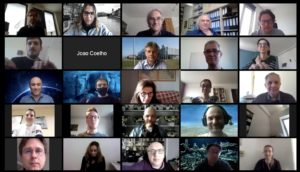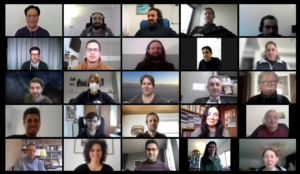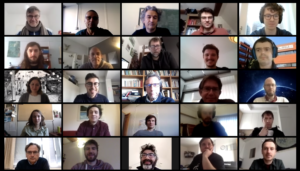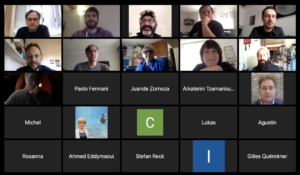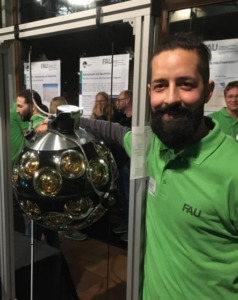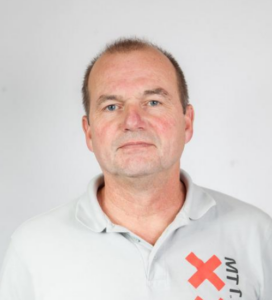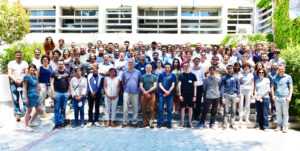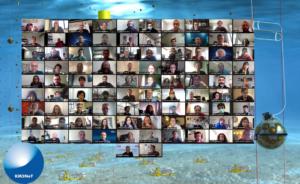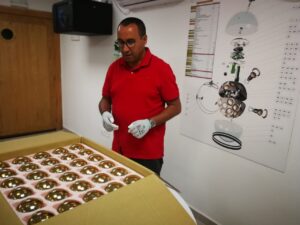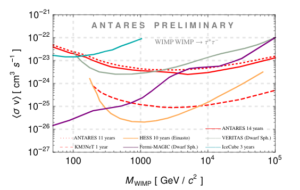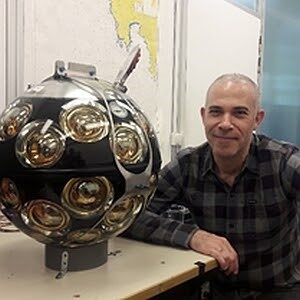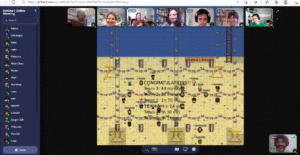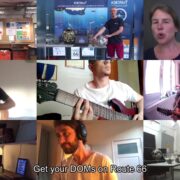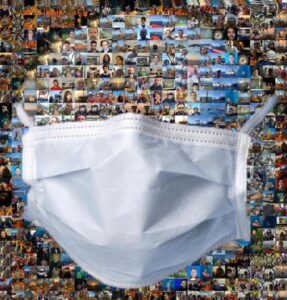
18 February 2021 – Like everyone else the KM3NeT Collaboration has to follow the restrictive measures against the COVID-19 pandemic. So, once more, the last two weeks we held our Collaboration meeting on-line. At this virtual meeting we discussed the many details of building the telescopes, analysing the data and developing the simulation programs. We are very encouraged by the large progress with constructing the many detector components and the installation of the ARCA and ORCA telescope infrastructures. We are excited by the many analyses of data from the installed detector units on which we will report at the upcoming conferences. Nevertheless, we tremendously miss our colleagues. In particular, for the young scientists in our Collaboration these are difficult times, but they are amazing in their efforts for the Collaboration.
During the Collaboration meeting we virtually said goodbye and thank you to Marco Anghinolfi, who will be retiring soon after many years of service to the Collaboration. We hope you enjoy your retirement. Arrivederci, but no goodbye!
We virtually raised a glass to thank Mauro Taiuti for his four years of leadership as Spokesperson of KM3NeT. Fortunately, he has promised to continue his scientific career in the Collaboration!
We are looking forward to the new leadership of Paschal Coyle and his team. All the best for executing the tremendous task ahead of building the telescopes and executing the scientific program – also in corona times. We will do our best to support you!
We virtually applauded our PhD students who have recently completed their theses and wished our postdocs leaving the Collaboration all the best for their careers!
We virtually welcomed new students and postdocs who will work on the nitty gritty of data analysis and detector calibration. We hope to meet you face-to-face very soon!
Last but not least, we virtually welcomed LPC Caen, France as a new group in the collaboration who will participate in both the construction work and the scientific program. Super!
On the bright side of virtual meetings our conference committee reported a more diverse participation of our Collaboration in the international conferences. More people took part and the representation among speakers was better balanced in seniority and gender.
Building and operating a telescope is an attractive, tremendous, collaborative effort relying on a lot of human interaction, hard to recreate in a virtual environment – but we did our best! We were still able to generate our customary Collaboration group picture as you can see below: a collaboration in corona times.
